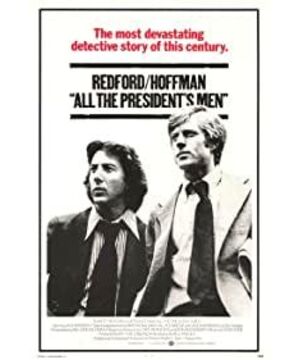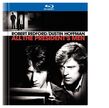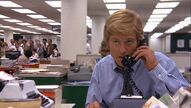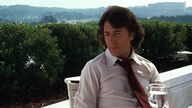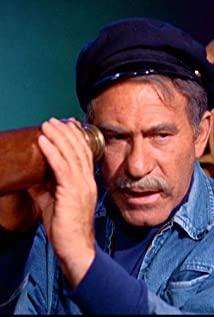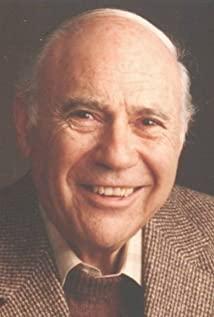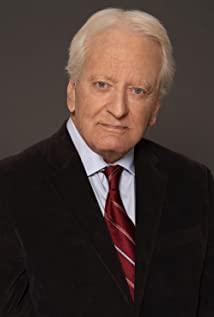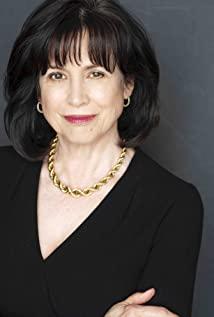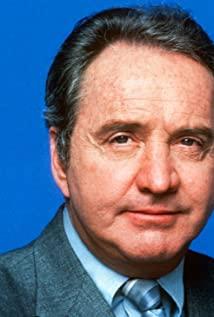The whole investigation process was full of hardships. In that era when the Internet was not developed, Bob and Carl could only rely on telephone interviews and field visits to conduct investigations. Through clues, they restored the truth bit by bit, and the whole movie gave an impression. The deepest part is the tireless number of calls made by the two reporters, and the sound of typewriters throughout. The two reporters found that the thieves had close contact with the White House staff, so they called the White House Office, the White House Library, the Library of Congress and other related institutions to conduct telephone interviews. However, because the incident involved government officials, the interviewees either answered the question or perfunctory. Even the words were inconsistent. They went to the library to find the records and found that the borrowing records had disappeared, and the investigation was once deadlocked. But every now and then, a mysterious figure "Deep Throat" appears, providing a crucial clue - tracking the money's direction. They found that a burglar, Bona Buck, had a check for $25,000 with the name of Kenneth Dagber, the treasurer of the Midwest. So Bob called Dugger for a phone interview and asked about the check. Dugger revealed that it was a fundraiser he collected and turned over to the re-election committee, and he was vague as to why the money ended up with the thief. He resigned, but then called back to reveal that he gave the money to Mullis Stans, Nixon's treasurer. Realizing that the matter had an inseparable relationship with the re-election committee, two reporters, Bob and Carr, obtained information on all the members of the re-election committee through their colleagues, and decided to conduct interviews one by one, but they were all rejected. Until they met a woman who was a bookkeeper on the re-election committee, she knew the truth, but was afraid to tell the truth, Carl did not rush to ask her, but did his best to appease her, follow the instructions, so as not to make her nervous Emotions, Carl doesn't take notes visibly, instead jotting down important information on napkins and matchboxes as she pours coffee. So they got a big clue, the reelection committee had a huge fund for bribes, five people were in charge of the money, the bookkeeper only told two reporters their initials, and Bob and Carl guessed based on the clues in their hands The specific names of five people. In order to further confirm their conjecture, Carl and Bob went back to the bookkeeper, pretended to know the real name, and tested it, and they came to the conclusion that their conjecture was indeed correct. Carl and Bob learned that the former chief financial officer Hugh Sloan resigned because they did not want to be involved, so they went to interview him again, communicated with him through the information they had learned, and confirmed the real names of the five people. In the end, they wrote the report, pointing the finger at the White House, and as a result "Washington" The Post was threatened, but editor-in-chief Ben Bradley insisted on press freedom and chose to trust the newspaper's journalists. Ultimately, in a series of incriminating evidence, President Nixon resigned from office.
Bob and Carl are just two ordinary young newspaper reporters. The film does not exaggerate their feelings of worrying about the country and the people and hating evil. Their motives are more out of a professional ethics and an instinct as reporters. After many difficulties, Bob and Carl finally revealed the truth with their professional skills, becoming the best footnote to press freedom in the history of American journalism.
View more about All the President's Men reviews


